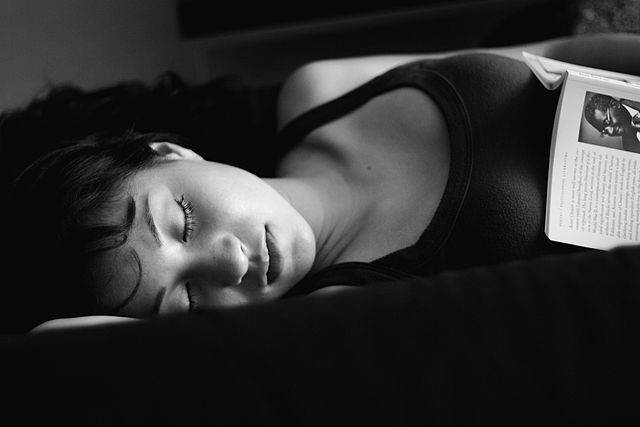6 Science-Backed Cures For Insomnia

We all love getting an uninterrupted good night's sleep to wake up feeling refreshed and invigorated in the morning. However, each night, millions of us struggle to fall asleep or stay asleep; and although this is only a brief problem for some, for others, insomnia can become an ongoing struggle. However, insomniacs can regain control of their sleep, without depending on medications.
Every year, in the U.S., as many as 40 percent of adults have insomnia, according to the American Academy of Sleep Medicine. Meanwhile, about 10 to 15 percent of people suffer from chronic insomnia, finding it difficult to get enough shuteye a few nights a week. Sleep deprivation is considered to be a “public health problem” by the Centers for Disease Control and Prevention (CDC).
Get your best night’s sleep ever by applying these natural and scientifically proven treatments.
Light Therapy
Dimming the lights before going to bed can help you fall asleep and stay asleep. Low-lighting at night will help trigger the production of melatonin, the sleep-inducing hormone, while exposing yourself to bright daylight in the morning helps shut down melatonin production. A 2014 study published in the Journal of Clinical Sleep Medicine found office workers who got more natural light exposure slept about 46 minutes longer per night than their colleagues without windows. The findings suggest your work environment can also play a role in your sleeping habits at night — sufficient daylight exposure at work can help employees' health and well-being.
Cognitive Behavioral Therapy
Popping a Ambien or Xanax in hopes of a good night's sleep may not be the best first option for treating insomnia. Guidelines from the American College of Physicians (ACP) published in the Annals of Internal Medicine found cognitive behavioral therapy (CBT-I) was the best first-line treatment for insomnia, rather than sleeping pills. A 2014 study found an hour's worth of talk therapy helped 73 patients improve their sleep quality, while another study found 86 percent of patients experienced reduced insomnia.
CBT-I involves learning new approaches to thoughts and behaviors that affect sleep. Therefore, persistent effort is critical, and patients should be aware symptoms may worsen before sleep improves. CBT-I could seem more complicated than medication because it involves long-term effort and follow-up, but support and encouragement could help patients abide by this therapy.
Hypnotherapy
Hypnotherapy for insomnia may help patients relax and fall into an undisturbed slumber. In a 2014 study published in the journal Sleep, women who listened to a sleep-promoting audio tape containing hypnosis cut their awake time by two-thirds, and spent 80 percent more time in deep sleep compared to women who didn't do hypnotherapy. Hypnosis for insomnia aims to produce positive changes that will help undo the patterns of sleep disturbances that have been embedded in the subconscious.
Aromatherapy
The scent of lavender is known to elicit feelings of calmness and relaxation, and unsurprisingly, sleep. Studies show a massage with essential oils, particularly lavender, may result in improved sleep quality, more stable mood, better concentration, and reduced anxiety. Research suggests aromatherapy with lavender slows the activity of the nervous system, which helps promote good quality sleep and positive mood in those with sleeping disorders.
Herbal Supplements
Melatonin is the most popular supplement for sleep, according to the American Academy of Sleep Medicine. It can help insomniacs get through temporary sleep disturbances. A 2013 review published in the journal PLoS ONE found melatonin can help people fall asleep faster, lengthen sleep time, and improve their overall sleep quality. Moreover, they found the longer patients are on these supplements and the higher the doses, the greater effects it has on total sleep time. The Mayo Clinic suggests taking by mouth a single dose of 0.5-5 milligrams before bed or as a daily dose for one to three months.
Acupuncture
Acupuncture may be able to boost the secretion of melatonin production. A 2004 study published in the the Journal of Neuropsychiatry and Clinical Neurosciences found after five weeks of acupuncture treatment, there was a significant improvement in melatonin production, increasing total sleep time and sleep quality. Certain acupuncture procedures have a nearly 90 percent success rate for the treatment of insomnia.



























